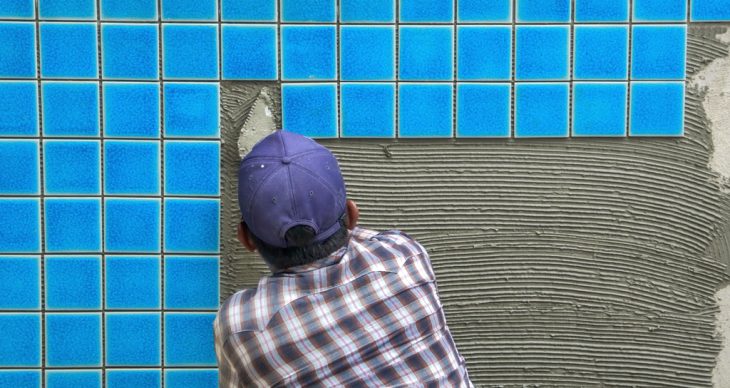There are a few different ways you can secure the cash you need to pay for the pool of your family’s dreams.
Cash-Out Refinance: One option is to refinance your home, which can help reduce your monthly payment and even lower your interest rate. With this option, you can also borrow up to 80% of your home’s equity and get cashback with cash-out refinance offers. Then, you can typically use that refund for anything, including home improvements like that pool you’ve been thinking about for years.
However, keep in mind that you’ll have to go through the mortgage approval process all over again: submitting income statements, having a good enough credit score to qualify and paying closing costs. Plus, since it’s a new mortgage, which is a secured loan, if you cannot pay it back, you may have to foreclose on your home.
Home Equity Line of Credit (HELOC): A HELOC allows you to tap into your home’s equity using a revolving line of credit, a bit like a credit card. And you can use these funds to upgrade your home and build that pool. What’s great about this option is that your monthly payments are based on how much you take out at a time.
Plus, the interest rates on HELOC are a lot lower than credit cards, so your payments will be going toward the principal and you’ll be able to pay it off faster than you might with a credit card. And getting the HELOC can take as little as a few weeks to apply and get approved. But, keep in mind that this does create a second mortgage on top of your current mortgage, so you’d be paying two mortgage payments at once.
Home Equity Loan: Similar to HELOC, a home equity loan is a second mortgage that you take out to tap into your home’s equity and pay for home upgrades like a pool. But you get a lump sum instead of access to credit to use as needed.
Interest rates for home equity loans may even be lower than that of a personal loan, but you have to pay closing costs and your home (and pool) serve as collateral should you not be able to make payments.
Personal loans: Also known as “pool loans” in this case, you can take out a personal loan to finance the pool you want. Many banks, credit unions and other financial institutions offer pool loans that provide you a lump sum of money to pay for your pool.
Then, you make payments on the interest and principal until it’s all paid off. Unlike the other options on this list, your home is not collateral if you’re ever unable to make payments. Some companies that offer great pool loan options include:
SoFi: The SoFi pool loan has no annual fees, a competitive fixed interest rate and borrowing power between $5,000 and $100,000, depending on your credit and the kind of pool you want to build.
HFS Financial: HFS home improvement loans provide you the financing you need to make big repairs and updates as well as build a big, beautiful pool. With HFS financing, you can expect a fast and simple application process, which involves completing an online application that doesn’t impact your credit score, getting a loan estimate that day, having your questions answered by their experienced loan consultants, providing your financial documentation, and funding your loan within 48 hours of providing documentation.
Lyon Financial: Lyon offers 25-year pool loans for amounts between $50,000 and $125,000, meaning your monthly payments are pretty spread out and lower than they might be with other loans. Plus, they offer fixed-rate loans up to $150,000. So whether you need inground pool financing or money for an above-ground pool, Lyon Financial has you covered.
LightStream: LightStream is the online lender within SunTrust Bank. They allow people to borrow between $5,000 and $100,000 at incredibly competitive rates. However, these loans are reserved for people with good to excellent credit and many years of credit history.
Upgrade: This financier is one of the best that offers pool loans for fair credit. There are no annual income requirements, and the minimum credit score they accept is 560. They also have many different repayment terms, allowing for flexibility in your repayment. You can even get a 0.5% discount when you set up autopay. But it’s important to note that there are loan origination fees of 2.9% to 8% of the loan’s total.




